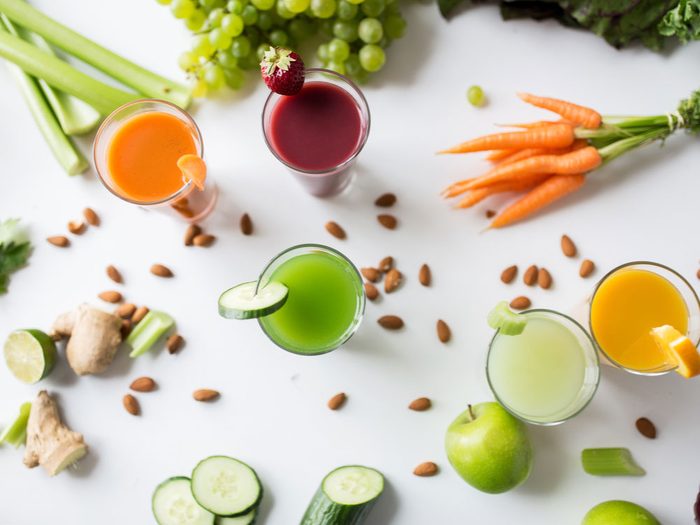
Are these nutrition trends really worth the hype?
There’s a lot of hype around eating healthy. And why not? We all want to nourish our bodies in the best way possible. The problem is sorting out what’s truly useful from what’s simply hopeful. “A lot of diets pop up and become trendy because there is a kernel of truth in them,” says Christy Brissette, a registered dietitian and president of 80 Twenty Nutrition in Toronto. But that doesn’t mean they’ll work for everyone – or do exactly what you want them to. “Just remember, there are no simple answers when it comes to nutrition,” she says. With that in mind, we’ve deconstructed six of the hottest 2018 nutrition trends and whether you should consider it or not.
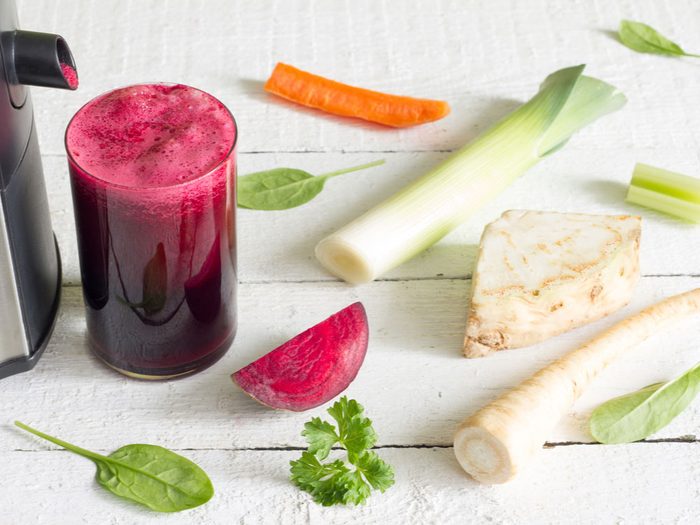
2018 nutrition trends: Weight loss juicing craze
It’s hard not to jump on the juicing bandwagon, what with celebrities like Olivia Wilde and Jessica Alba endorsing it and juice bars popping up in major urban centres. After all, what could be wrong with drinking your daily dose of antioxidant-loaded fruits and veggies to shed a few pounds? If you drink only juice and eat nothing else, you may lose weight in the short term, but you’ll gain it back because you can’t sustain that kind of low-calorie eating, explains Brissette. “Also, juicing removes fibre, so you’re drinking straight sugar,” she says.
What’s the verdict?
Hype: Use juicing to supplement a healthy diet with a blast of phytonutrients occasionally, but stick with protein-rich smoothies if you want a balanced liquid meal replacement. (Try this bee pollen smoothie for a quick protein boost.)
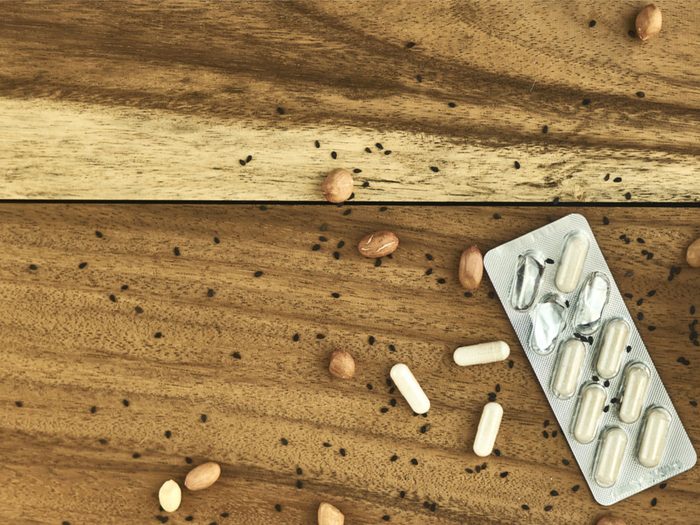
2018 nutrition trends: Boost immunity with probiotics
If the allure of ingesting bacteria for better health doesn’t have you salivating yet, it should. Probiotics have been proven to help boost your body’s immune response. “There’s a large body of research that suggests they help reduce inflammation in the digestive tract and boost the immune system,” says Brissette. The hitch, explains Amanda Li, a registered dietitian in Toronto, is that only certain probiotic strains help with immunity, so you can’t be guaranteed that you’re getting enough in your yogurt or kefir.
How to get the most out of your probiotics.
What’s the verdict?
Helpful: Download the free Probiotic Guide Canada app. The app organizes brand-name products by specific probiotic strain and the health condition it treats – from antibiotic-related diarrhea to colitis – based on scientific evidence.
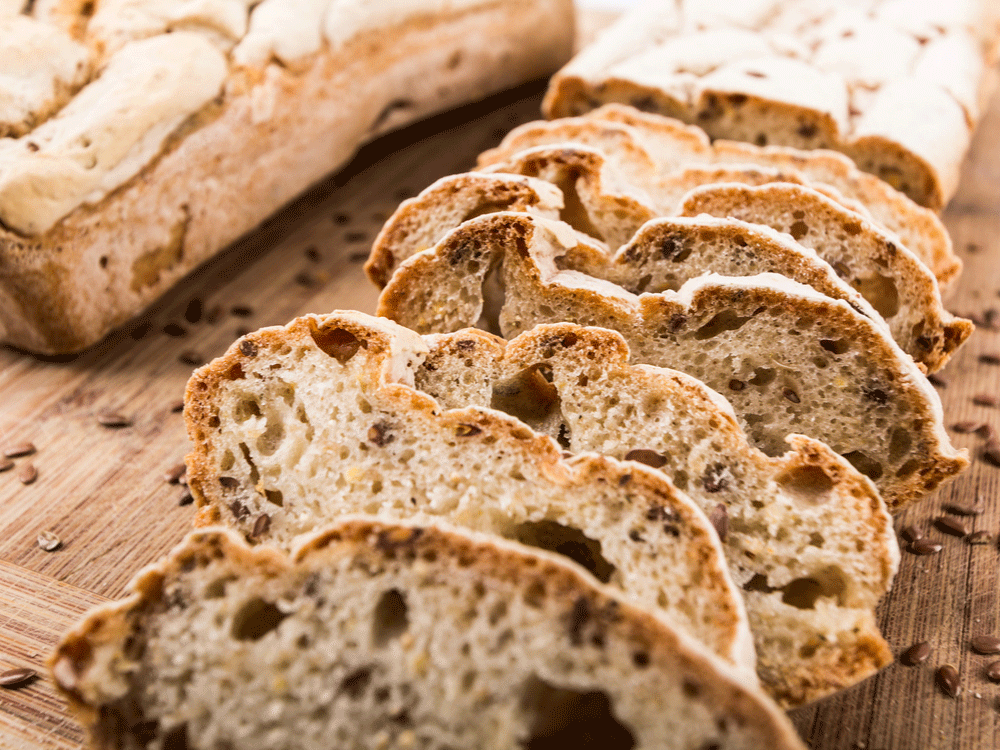
2018 nutrition trends: Beat bloating by going gluten-free
While one in 133 Canadians is affected by celiac disease, gluten sensitivity is not as common as people think, says Li. While going gluten-free is all the rage, Brissette says that some studies show that a placebo effect may be at work. “Oftentimes my clients think gluten is causing bloating, but it could be the gassy vegetables they’re eating, like cabbage and kale,” she explains. “Eating less gaseous veggies and smaller portion sizes often helps.” We’re also guilty of overeating carbs, which explains why going gluten-free is often associated with less bloating.
Learn all things gluten-free from these gal pals: @glutenfreedominc and @goinggrainless.
What’s the verdict?
Hype: A well-planned gluten-free diet can be healthy as long as it contains primarily nutrient-dense foods, such as vegetables, legumes, beans, high-quality proteins, nuts and seeds, instead of refined and processed gluten-free foods, says Li. That being said, the key is to eat a balanced whole food diet that works with your system and, for most people, that can certainly include whole grains.
These 3 gluten-free pasta recipes are a must-try:
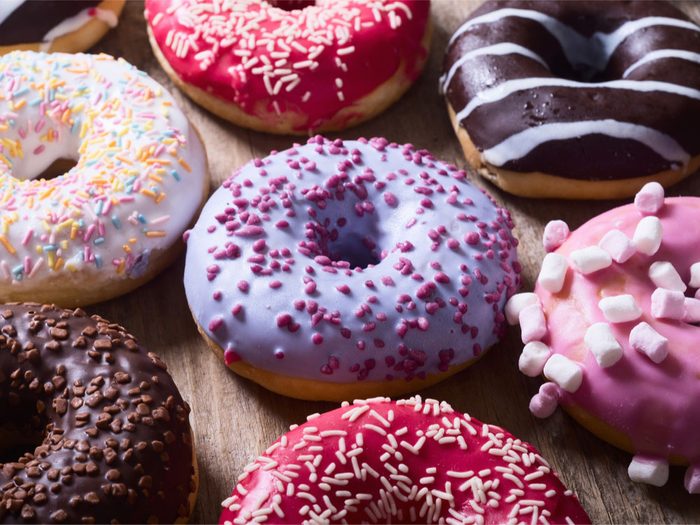
2018 nutrition trends: Cut back on sugar to lighten your mood
We’ve all eaten to boost our mood (read: ice cream on bad days). But there’s powerful evidence behind the push for the opposite: One study found that a diet high in sugar and refined carbohydrates (high-glycemic foods) could be a risk factor for depression in post-menopausal women. “Eating more high-glycemic foods is linked with increased depressive symptoms, fatigue and mood fluctuations,” says Brissette. High-glycemic foods – those high in sugar – are starchy and low in fibre and cause fast, mood-destabilizing releases of blood sugar.
This is why cutting back on sugar is beneficial for your health.
What’s the verdict?
Helpful: Reaching for low-glycemic foods, including most fruits and vegetables and whole grains, can help you lose weight and promote mental well-being. “If you have a sweet tooth, try to balance that with a protein and a healthy fat, like fruit with a handful of nuts or seeds,” she adds.
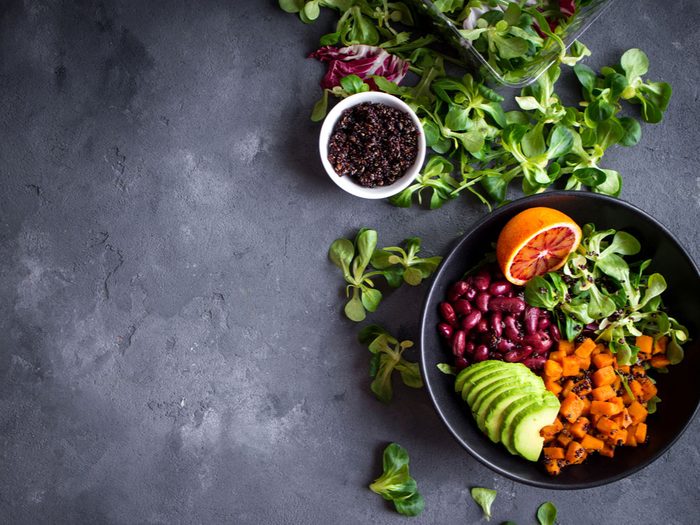
2018 nutrition trends: Improve skin with a detox
There’s still no definitive answer to the hype that chocolate (and other sugars), dairy and carbs cause acne. Our diet’s role in our skin health is finally being seriously examined by clinical research and there appears to be a link between high-glycemic foods and acne, but it’s still too early to tell. “It wouldn’t hurt to cut back on processed, sugary foods,” says Brissette. “But there’s no proof for cutting all sugars, including carbs, from your diet to help your skin. In fact, the reverse is true: A lot of high-protein, high-fat diets are linked to acne.”
If you’re going to start a detox, here’s what you should know before you begin.
What’s the verdict?
Jury is out: If you want to eat for healthier skin, aim for lots of fruits and vegetables, along with healthy fats and proteins, and drink lots of water, says Brissette. And don’t deny yourself the odd sugar craving because you’re worried it will cause a breakout.
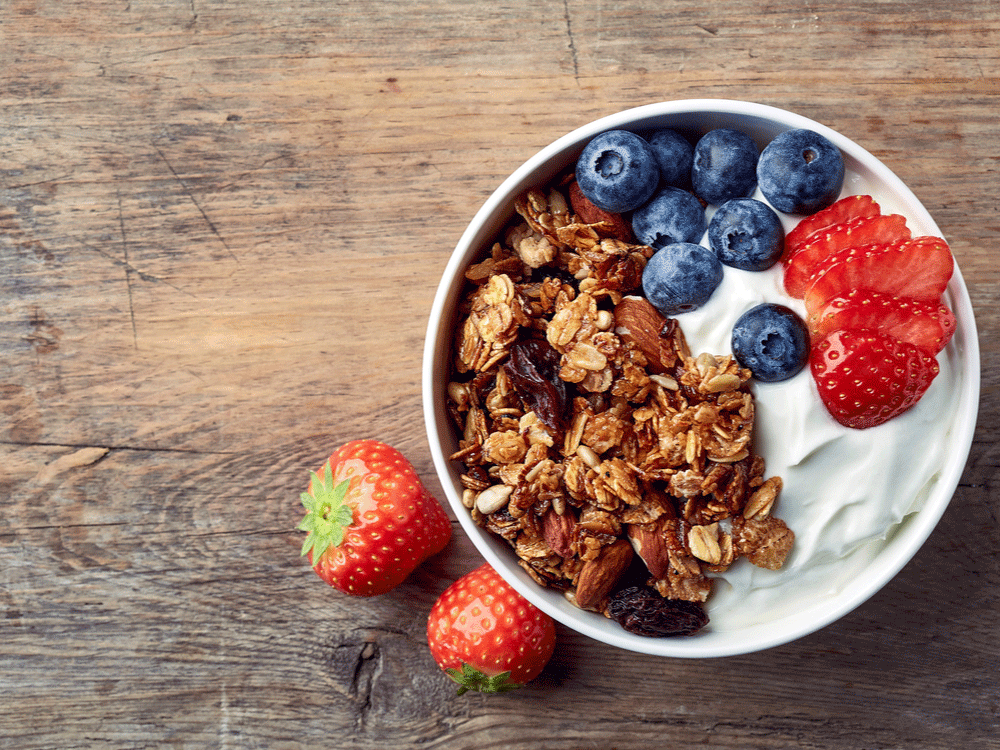
2018 nutrition trends: Eat full-fat dairy to prevent cancer
This trend is so new, you may not have heard about it yet, but bring on the butter (in moderation, of course)! Full-fat dairy products, including whole milk, cheese and yogurt, are linked to a host of health improvements, from preventing obesity to mitigating type 2 diabetes to preventing cancer-causing cell formation. It all comes down to a type of naturally occurring fatty acid in milk called conjugated linoleic acid (CLA), says Brissette. This powerhouse has been shown to suppress cancer cell growth at relatively low doses in various studies.
It’s simple, change up your diet to lower your risk of cancer.
What’s the verdict?
Helpful: “You don’t want to overdo it on saturated fats,” says Brissette, in part because experts don’t yet know how much CLA we need for positive health benefits. But she recommends enjoying whole milk in your coffee or opting for “real” versions of foods.
